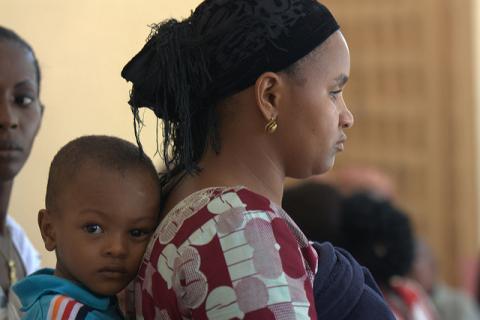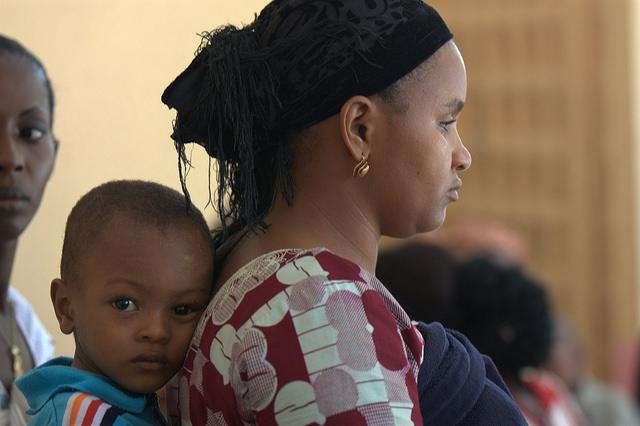
According to the six pillars established by the WHO, the presence of health staff is one of the most important priorities to ensure the proper execution of health care in a country. Data published by the WHO in 2010 shows that the density of doctors, nurses and midwives is the weakest in Guinea out of 49 countries with a critical scarcity of health staff.
What is the role of the WHO to help to resolve questions of healthcare human resources? Since the launch of the UHC Partnership the WHO intensified its plea with the Government and technical and financial partners, in favor of necessary support for the health system reform process.
“A certain professional category is disappearing,” says Dr. Mamadi Condé, an officer of the Technical Secretariat of the Committee for Health Sector Coordination. “We need to expand educational programs and schools so that these jobs can be performed again.” The WHO supported the Ministry of Education on the issue through the Committee for Health Sector Coordination (CCSSS), leading eventually to the construction of a school in Kindia, the third biggest city in Guinea.
The establishment in Kindia is responsible for the training of midwives, State nurses, and pharmacists. Another school was recently built in Conakry, the capital of Guinea, with a population of more than 2 million inhabitants. According to Dr Condé, these two schools serve as an example and have already mobilized the private sector. “There will be more establishments of this kind, especially now that the other actors are involved and the new National Health Plan is going to be published in October this year.”
The WHO plays a critical role in the development of the Guinean Health Plan 2015-2023, advising on the process through the CCSSS. This plan is likely to include clear guidelines on the number of schools and programs required to assure that Guinean citizens have better access to care.
